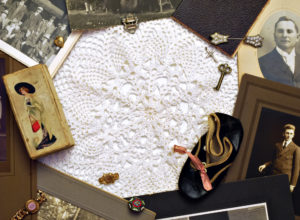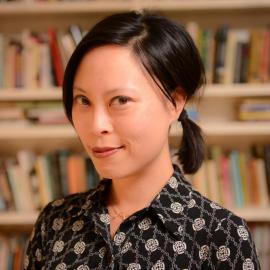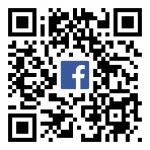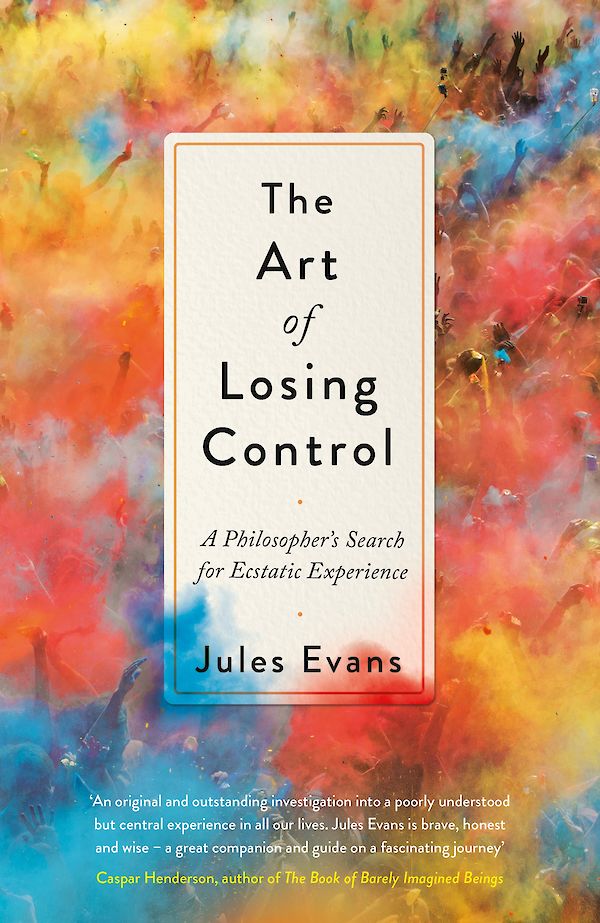Find out by reading Richard Firth-Godbehere’s article for Gizmodo.
Author Archives: helenstark
Emotions in Modern British History Lunchtime Seminar: Andrew Seaton ‘Emotion on the Ward: Making Social Democracy in the Early National Health Service’
Our first lunchtime seminar this semester will be delivered by Andrew Seaton (NYU) and chaired by Helen McCarthy (QMUL). Andrew’s paper is titled ‘Emotion on the Ward: Making Social Democracy in the Early National Health Service’. No need to book. Lunch provided.
Abstract: In July 2018, the National Health Service (NHS) will celebrate its seventieth ‘birthday’. NHS surgeries, clinics, and hospitals, in every town and city across Britain, are a testament to enduring postwar social democratic ideals. But why does nationalised medicine still stand when other parts of the universalist welfare state crumbled? This paper addresses this question by considering the making of social democracy on hospital wards in the 1940s-1960s. Following the experience of one patient in a maternity hospital, I explore the changing emotional dynamics of being hospitalised in postwar Britain. While anger, anxiety, and frustration posed a significant threat to the fledgling NHS, affection and communal bonds between patients and staff made possible its longer survival.
The talk will take place in room 2.17, Arts Two, Mile End Campus, London E1 4NS. For directions to Mile End and a campus map, see bit.ly/QMcampusmap.
Other papers in this series include:
1pm, 22nd November: James Southern ‘The ‘Spotting a Homosexual Checklist’: Masculinity, Homosexuality, and the British Foreign Office, 1965-1991’.
4pm, 6th December: Helen McCarthy ‘Graduate Mothers and Emotional Labour in 1960s Britain’.
Emotional Objects: From Lost Amulets to Found Photos
A lost necklace received as a gift from a loved one, a stash of photographs found in a dusty attic… What objects are you emotionally attached to, and what feelings do they conjure up? Explore your emotions and how they are shaped by the objects around you at this drop-in event at the Royal College of Nursing, run by the Centre for the History of the Emotions as part of the Being Human Festival. Find out about gut feelings, add your emotional talismans to our display and explore your emotions and how they are shaped by objects through a series of drop-in activities. Attend short talks covering everything from fetishes to the hidden objects found in houses. This event will run in two sessions: 2-5pm and 6-9pm (talks in the evening only). Booking is essential and available on the Being Human website.
See the event on Facebook:
Activities:
Emotional Talismans
Do you carry an object with you that has emotional meaning? Or did you have a comfort blanket or similar item as a child? Bring it with you and we’ll photograph it for our picture wall or you can write a description on a parcel tag for our display. Learn about East End folklorist Edward Lovett and his collection of charms and amulets.
Signs of Life: emotional objects
Puppeteer Mervyn Millar will lead short practical workshops on animating objects that he has brought (but feel free to bring your own too). Emotions will be provided by the participants. Workshops will last about half an hour and will have limited numbers.
Invoking Memories: Sense of Place
Encounter objects designed to provoke an emotional response and evoke memories with artist Georgie Fay. Learn how to make monoprints of your important remembered spaces which will be displayed at the event.
Sentiment or sensation? Using historical images (2-5pm only)
In the digital era, historical images of people can be circulated more widely than ever before. In this workshop, participants will be asked for their thoughts on a range of historic images that have been re-used in various ways – from advertising wine to being transformed into video game characters. What are the ethical issues of such re-use? And how do they make us feel?
Please note that we will be using some medical photographs in this workshop; participants can choose whether or not they wish to see these. Workshops will last about half an hour and will have limited numbers. Under-18s will need permission from a parent or guardian to participate.
Gut Feelings
What’s your gut feeling? Our abdomens have long been recognised as sites of emotion, and cutting-edge research into the gut microbiome is bringing us closer than ever to unveiling this mystery. Our emotions and decisions are wrapped up in our digestive systems. Join us as we look at what the gut does for us – from past to present!
Belt Up: Accessories of Care
Reflect on your achievements while making your own belt buckle with the RCN Library & Archive team. Historically, belt buckles (given to nurses as gifts on their graduation) and hospital badges were the only way nurses personalised their uniforms, and these items have strong emotional resonance.
London’s Lost Dead
In 2012, Richard III’s grave was found under a car park in Leicester. But what lies buried beneath London’s streets? Learn about the city’s lost burial grounds and the unexpected places the dead are often found. How might the city and culture change memorial practices?
‘Orrible Objects
Explore a collection of objects now thought of as disgusting, offensive, uncanny, unpleasant and horrifying. How can we transform them into something acceptable and what does this tell us about how ideas of what’s ‘horrible’ has changed?
Do You Have a Theory of Other Minds?
Since the early twentieth century, psychologists have developed tests to see if you can understand the thoughts and feelings of other people. Come and try some of those tests and consider what it means to have a “theory of other minds”.
Cocktails with Killgrief and Comfort
Explore the relationship between taste and memory with these evocative cocktails from Killgrief and Comfort. Experience Spring, Summer, Autumn or Winter in a glass! (£7 alcoholic; £5 non-alcoholic)
Talks
Compered by Jules Evans
6.15 Rhodri Hayward ‘Messy Feelings and the Magic of Tidying Up’
6.45 Ceri Houlbrook ‘Hidden in the Home: The Concealed Revealed Roadshow’
7.15 Paolo Gervasi: ‘Fetishizing Memories: Emotional Objects in Literature’
7.45 Hannah Williams ‘Finding the Artists of 18th-Century Paris: Stories in Maps’


Annual Lecture – Professor Sianne Ngai
We are delighted that Professor Sianne Ngai (University of Chicago) will give the Centre for the History of the Emotions Annual Lecture for 2017 on Thursday 16 November at 6.30pm in the Arts Two Lecture Theatre, QMUL (Mile End Campus). Professor Ngai’s lecture is titled ‘The Gimmick as Aesthetic Judgment and Capitalist Form’. Booking is essential.
Abstract:
Using examples from philosophy, literature and anthropology, this talk explores the gimmick as a form that simultaneously repels and attracts us and the judgment by which we express this ambivalent mixture of feelings. As both a compromised aesthetic form and an equivocal aesthetic judgment stemming from the recognition of interlinked contradictions surrounding labor, time, and value, the gimmick offers us a surprisingly rich place to think about capitalist aesthetics and the intertwining of technique and enchantment therein.
—–
Doors at 6, lecture at 6.30. The lecture will be followed by a drinks reception in the Arts Two Building. All welcome.
Signs of Life: Puppetry, Emotions, Embodiment and Empathy
A panel discussion with Mervyn Millar, Emily Cross, Matthew Longo, Susanne Quadflieg and Joel Smith
Chaired by Tiffany Watt Smith, QMUL.
What role can puppetry play in unravelling the psychology of empathy and our ability to read each other’s emotions? How is it that we can we so easily feel apparently real emotions when watching bodies that are not even flesh and blood? Do we react differently to puppets, robots, avatars and people? And can we ever really ‘suspend disbelief’?
Puppet designer and director Mervyn Millar has been Leverhulme Trust Artist in Residence at QMUL’s Centre for the History of Emotions during 2017. He will discuss these themes and related phenomena with academic researchers from a variety of fields: Prof Emily Cross (School of Psychology, Bangor University), Prof Matthew Longo (Cognitive Neuroscience ‘Bodylab’, Birkbeck University of London), Dr Susanne Quadflieg (Senior Lecturer in Experimental Psychology, University of Bristol), Dr Joel Smith (Senior Lecturer in Philosophy, University of Manchester) and some puppeteers will all contribute to round table discussions and debate. Chaired by Dr Tiffany Watt-Smith (Centre for the History of Emotions, QMUL). This event is funded by the Leverhulme Trust.
Programme:
14.00 Welcome and introductions from the speakers
14.30 – 15.30 Discussion led by Tiffany Watt Smith, inviting cross-talk from the participants and including puppetry performances
15.30-16.00 tea and coffee break
16.00-16.50 Discussion and puppetry
16.50 Questions and wine reception
17.30 Finish
Attendance is free but limited: please email Helen Stark (h.stark@qmul.ac.uk) by 16 October for a place. This event will be recorded.

Centre for the History of the Emotions Events 2017-18
Annual Lecture
6.30pm 16 November: Sianne Ngai, University of Chicago. ‘The Gimmick as Aesthetic Judgment and Capitalist Form’. Arts Two Lecture Theatre, QMUL. Registration essential.
Work-in-progress Seminars: Emotions in Modern British History
1pm 18 October: Andrew Seaton, NYU. ‘Emotion on the Ward: Making Social Democracy in the Early National Health Service’. 2.17, Arts Two.
1pm 22 November: James Southern (QMUL). ‘The ‘Spotting a Homosexual Checklist’: Masculinity, Homosexuality, and the British Foreign Office, 1965-1991’. 3.16, Arts Two.
4pm 6 December: Helen McCarthy (QMUL). ‘Graduate Mothers and Emotional Labour in 1960s Britain’. Followed by Christmas Drinks Party. 2.17, Arts Two.
Conferences/Workshops/Symposia
2-5.30pm 20 October ‘Signs of Life’ workshop. Contact Mervyn Millar for more information.
Public engagement events
2-9pm 20 November: Emotional Objects Drop-in Late at Royal College of Nursing. Part of the Being Human festival. More details and registration to follow.
26 January: Concert with the London Chamber Orchestra with a talk by Elena Carrera. Octagon, QMUL.
Jules Evans discusses history of the emotions with Clare Balding
If you’d like to hear Jules Evans discussing the history of the emotions with Clare Balding then you are in luck! Listen again to BBC Radio 2’s ‘Good Morning Sunday’ (10 September 2017) where Jules features about an hour and a half in.
New Centre Director
We are pleased to announce that as of September 2017 Elena Carrera is the new Director of the Centre for the History of Emotions. Elena will hold this position until August 2018 when she will be succeeded by Rhodri Hayward.
Thank you to Thomas Dixon who has been crucial to the continued success of the Centre, having held the position of Director for the last nine years.
The Art of Losing Control by Jules Evans
Jules Evans’ new book The Art of Losing Control: A Philosopher’s Search for Ecstatic Experience was published by Canongate books in April 2017. Read a review in The Guardian.
Thomas Dixon on BBC Radio 5 Live and Proms Extra
Hear Thomas Dixon on various BBC programmes…
On 13 July Thomas talked about Theresa May’s tears on 5 live Drive
On 14 July Thomas contributed to 5 live Breakfast with Nicky Campbell
On 15 July Thomas contributed to the BBC’s Proms coverage with Wiebke Thormählen

